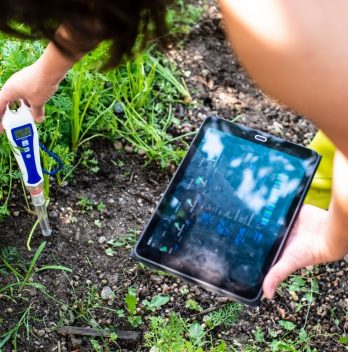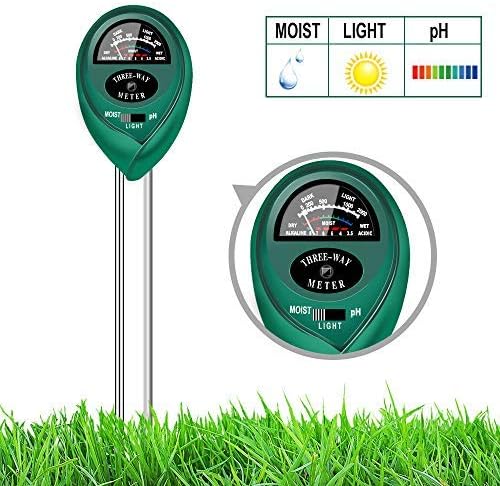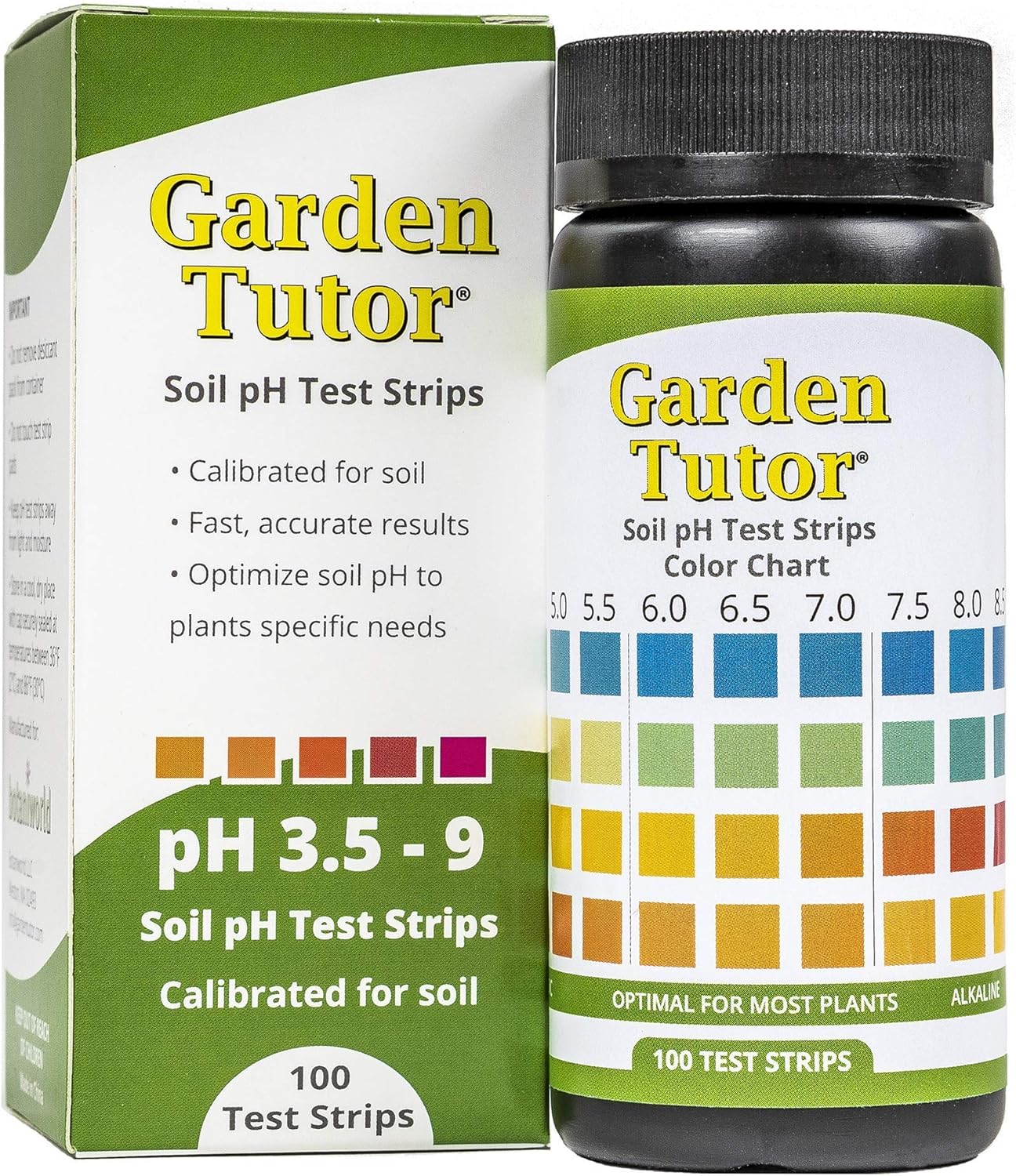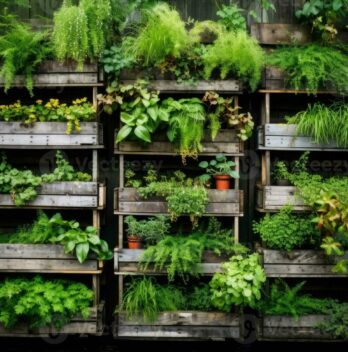It is critical to use the best pH meter to test your soils’ status to ensure your plants are getting the nutrients they need to be healthy.
One of the most critical factors that determine if your plants will thrive in the soils’ acidity or alkalinity. If the pH value of the
Soil with a very high pH is alkaline. It prevents the plants from having enough iron, copper, manganese, zinc, and phosphorous. Iron is vital to plants especially the evergreens.
What to Consider when Buying the Best pH Meter
A good

- Accuracy of the pH Meter. Always go for a pH tester that offers accurate results. Generally, there is a range that your pH must measure. It can be anything from 3.5 to 8, some ranging slightly larger or smaller. The instructions part contains details that you need to know before buying the pH tester. Pay close attention to these instructions they give you an idea of how to get the best pH meter.
- Probe the Depth Length of the
Soil Tester.Soil pH testers come in singles or doubles designs. These probes are made out of silver, aluminum, copper, or an amalgamation of metals. The probe depth is critical – the longer the probe the better it is in giving you the best results. This is because it not only tests the top layersoil . - Single or MMlti-function. Some pH tests the
soil ’s alkalinity or acidity only. Others can test other factors too like the moisture content and light levels. By buying 3 in 1 test kits you will be able to test yoursoil of all the tests that influence your plant growth. - Portability. Go for a
soil pH tester that is lightweight, compact, and durable. The probes could be gentle, but the unit must be strong enough to give you value for your money. - The power source. Most pH testers are battery-free meaning you use them without the need to plug in the batteries. Others require batteries to work. You can opt to use either of the pH testers. There is no proof that those with batteries work better than those without.
Read more about The best Soil Moisture Meter in the Market
How to Read a Soil pH Meter Results
Before you can interpret the results of your pH tester, first understand the basics of the acidity or alkalinity. These basics run from 0-14, with 7 being the neutral number. Anything above 7 is alkaline while anything below 7 is acidic. Most testers come with a chart to help you read the results.
Most electronic pH testers have a probe that inserts directly into the
Be sure to use the chart that comes with the tester. This helps you get the correct decoding for the results every time you carry out the tests.
The Top Best pH Meter
Now that we have seen why it’s important to test your
YOYOMAX Soil Test Kit pH Moisture Light Tester
YOYOMAX pH tester has a 3 in 1 design that tests the pH,
This test kit is small and portable so you can carry it with you and use it anywhere. It’s best for indoor plants.
Pros
- No batteries or chargers needed
- It’s a 3 in 1 measuring light, pH, and moisture
- It is affordable
Cons
- Takes about 10 minutes to give the results
BLUELAB PENSOIL pH Pen
BLUE LAB pH pen is a new technology pH testing kit that uses a lab-quality probe. It measures the pH in swimming pools, brewing industries, and hydroponic gardening.
Calibration with this test kit is easy ensuring the accuracy of the results. The backlit LCD makes it easy to read the results and reminds you when it’s time to calibrate.
It is simple to use by inserting the probe into soft
Pros
- Comes with a 1-year warranty
- Has the ability to calibrate
- It is waterproof
Cons
- It costs higher in price
GARDEN TUTOR Soil pH Test Strips Kit
GARDEN TUTOR offers pH test strips that are calibrated to deliver quick results. Each strip measures the pH between 3.5 – 9. These strips deliver more accurate results than the universal test strips.
The kit comes with a 16-page handbook for sulfur and lime application charts that are based on your
This kit is affordable considering the number of tests it performs. It comes with clear instructions to follow in testing your
Pros
- This kit has 100 test strips lasting you a long time
- Results are easy to determine using the easy to read the chart
- The strips only measure the pH and give accurate and reliable results
Cons
- The testing process is tedious and takes longer than other testing methods
LUSTER LEAF 1835 Rapitest Dig 3W Analysis
LUSTER LEAF pH
The results are easy to read and displayed on the digital screen. The screen displays 1 result at a time but it’s easy to press up and down buttons to display the rest of the results.
LUSTER LEAF is easy to work with insert the probe into the
Pros
- It provides accurate readings within a short time
- It was designed in the USA
- The fertility test takes into account the NPK levels in the
soil and gives a reading of 1 – 10.
Cons
- It too gentle
- Cleaning and caring for the probe is tedious
BLUE LAB METCOM Combo Meter
BLUELABMETCOM is one of the best pH meters for hydroponic farming. It specifically tests the water used in hydroponic. This combo tests the pH, temperature, and conductivity. It is lightweight and portable with a long probe of 6.5 feet.
This makes it easy to stretch and get whatever readings I need. It is easy to read the digital display because the buttons are marked. It is powered by 2 AAA batteries and comes with an auto shut off feature that helps you save power.
Pros
- Includes a 5-year warranty
- Saves you power through its auto shut off button
- Allows pH calibration to take place by the push of a button
Cons
- Instructions might be difficult to understand
- Results can be less accurate
FAQs
The most accurate way to measure pH is with a pH meter. The only problem with pH meters is that they are not cheap and they require some maintenance, but if you are doing research or have a large area to sample, then a pH meter is the way to go. The pH scale can vary by about 0.2 units from lab to lab and even more than that depending on the pH of the water used. If you are using a meter that isn’t calibrated, it will have an error. You can buy meters that are calibrated for your soil type and the amount of acidity in your area, but even these meters will not be perfect. A good calibration can help you determine the amount of acidity in your soil and also help you understand how to adjust the readings when you dig new holes. There are a variety of soil pH meters available on the market. Soil pH is one of the most common chemical analyses performed by a home or professional gardener. The most accurate soil pH meter will give you a more accurate reading, which in turn will provide you with an idea of what type of fertilizer to use. Many of the soil pH meters available on the market are designed to be used by a professional who has access to a lab and is trained in the use of such equipment. However, there are many soil pH meters that can be used in the home, so it is important to know how to select one that will provide the best reading. There are many factors that go into choosing a soil pH meter for your home garden. First of all, you want to make sure that the meter can be used in the field. Some soil pH meters are designed to be used in the laboratory, while others are designed for the home gardener. Also, you want to make sure that you get a soil pH meter that will provide you with an accurate reading. A soil pH meter should give you a reading that is within one pH unit of the true pH value of the soil. Soil pH is a measurement of how acidic or alkaline a soil is. The best soil pH meters measure the actual soil pH and then convert it into a pH number that you can see on your meter. Most people use a soil pH meter to find out what is causing their plants to be sick, and if they need to add some lime or sulfur to make the soil more acidic or alkaline. The most accurate soil pH meter should be able to measure soil acidity or alkalinity in a wide range of soil types, and be able to measure the acidity of the soil at the depth where the test sample is taken. Soil pH testing requires knowledge of both soil chemistry and soil physics, as well as knowledge of how the pH meter is calibrated. It is also important to understand the limitations of using a soil pH meter. Soil pH meters can be found in a wide range of prices and accuracy. What should I consider when shopping for a Ph meter?
What is the most accurate soil pH meter?
What makes the most accurate soil pH meters so accurate?
The Best pH Meter – An Ultimate Guide For Your SoilConclusion
For your plants to grow to their full potential, the right pH is important. If you notice your plants’ leaves are turning yellow or any other color, it is best to check the pH stage of your
It is critical to use the best pH meter to get the most accurate results. Especially if you are working to correct the
Choose the 3 in 1 tester so that you can be able to test your soils for its health. Your plants will thank you and happily thrive!









